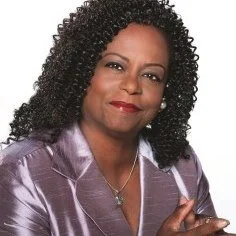The Write Way to Healing
09-01-2022
Drawing from her lived experience and academic study, “The Trauma of Sexual and Domestic Violence, Navigating My Way Through Individuals, Religions, Policing, and the Courts,” tells Rev. Dr. Sharon Ellis Davis’ story of surviving and thriving after experiencing intimate personal violence (IPV) and sexual abuse. In addition, she invites women – especially Black women – to experience the healing and wholeness that truth-telling can bring.
Taking advantage of the gift of time afforded her during the pandemic, Rev. Dr. Ellis Davis (D.Min.’95) found herself taking walks and listening to podcasts about celebrated Black women, past and present. Energized and inspired by the physical and mental exercise, she found that those acts of self-care prepared her to reflect on and write about her childhood as a “preacher’s kid,” as well as her 31 years with the Chicago Police Department where she served as an officer, chaplain and a forensic scientist who testified in court as an expert witness after examining rape kits and other evidence recovered from crime scenes. Rev. Dr. Ellis Davis also recalled her 20 years as a pastor within the United Church of Christ, listening to survivors and attempting to situate her congregations as safe places for individuals coping with the trauma of sexual violence.
“My desire in writing my memoir was to share the truth in ways that could help women and girls eliminate shame, blame, guilt, and self-sabotage,” says the 2019 Distinguished Alumna. “I also wanted to speak clearly and directly to institutions and call out ways traumatization happens on a systemic and institutional level so that we can learn within the academy and faith communities how to offer trauma-informed care and theological clarity. My aim is to help women and girls move towards liberation and live the abundant life God desires for us all.”
The book became an outlet for addressing and challenging institutions that have overlooked sexual violence and IPV. It helped Rev. Dr. Ellis Davis look at her faith journey through reframed lenses, and it provided insights on the intersectionality of race, class, gender, and religious and cultural systems.
According to the World Health Organization, one in three women will experience physical or sexual violence during their lifetime. Such violence transcends religious denomination, race, class, gender, and gender identification, and because of the stigma that often accompanies sexual violence, many incidents go unreported.
“There has not been enough research about abuse and violence against Black women,” says Rev. Dr. Ellis Davis, the first Black woman to earn both a M.Div. and Ph.D. from Chicago Theological Seminary. “What’s missing in our society are memoirs that can be used as valid sources for research and provide content for discussions in churches, seminaries, and other institutions.”
Dr. Ellis Davis’ latest work addresses what’s missing and exemplifies how faithful strength grows as stories are told in ways that can bring healing and confront injustices.
Rev. Dr. Sharon Ellis-Davis
Affiliate Professor
Field of Study: Domestic Violence, Pastoral Care
“Until the lion [lioness] learns to write,” asserts Zimbabwean woman doctor, J. Nozipo Maraire, “all stories will glorify the hunter.” Rev. Dr. Sharon Ellis Davis is writing.


